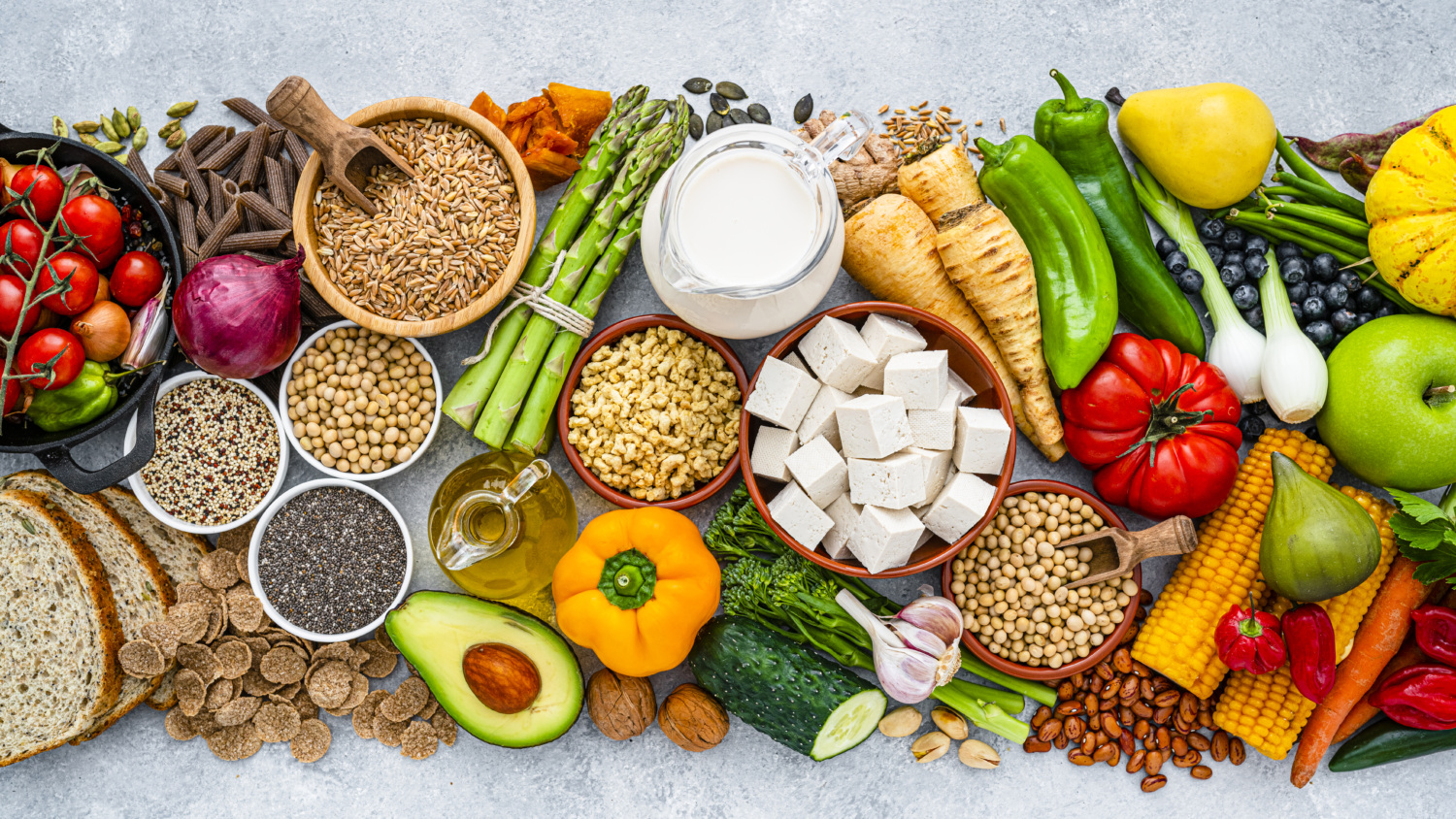
Plant-based proteins: a key solution for cutting methane — but are supermarkets doing enough?
By Jordan McDonald, Manager, Protein Transition
While most of the top 20 global retailers offer private-label meat and dairy alternatives, very few have set meaningful sales targets or disclose progress at the group level, and only one is making strides towards price parity with animal-based products.
Methane: the overlooked superheater
A recent study suggests that methane emissions are responsible for nearly half of global warming since 1750. Animal agriculture is the largest human-driven source but also presents the greatest opportunity to cut emissions fast. Plant-based proteins, from beans and lentils to meat and dairy alternatives, offer a powerful lever to slash emissions. Compared to beef, plant-based meats reduce GHG emissions by 67-89% and land use by 86-97%. With alternative proteins projected to reach 11% of global protein consumption by 2035, they could cut 0.85 gigatonnes of CO2e by 2030 – equivalent to eliminating nearly all emissions from global aviation. With further investment and supportive regulation, emissions savings could rise to 2.2 gigatonnes of CO2e – equivalent to wiping out the annual emissions of Japan.
Retailers: the gatekeepers of food system change
Supermarkets play a pivotal role in shaping the food environment, influencing producers, suppliers and consumers. Just as they once fueled the rise of factory farmed chickens, supermarkets have the power and responsibility to accelerate the shift toward healthier, more sustainable diets.
However, our new Methane Action Tracker developed with Changing Markets Foundation, shows that the world’s biggest retailers are failing to tackle methane emissions in their supply chains. The Tracker measures progress across multiple methane-related indicators. In the Alternative Proteins category, the average score across the 20 retailers was just 4.9 out of 20 (24%).
Key levers for alternative protein growth
The Tracker evaluates supermarkets across four key areas:
- Sales increase targets: Clear, measurable targets align strategy and drive action. Retailers should aim for at least 60% plant-based protein sales by 2030 at the group level, in line with the EAT-Lancet’s Planetary Health Diet. Proportional targets are essential, given that a growth in plant-based sales must come with a reduction in animal protein to cut emissions.
- Transparent sales reporting: Disclosing sales data for plant-based and animal proteins enables tracking and accountability. Standardised frameworks like The Protein Tracker or WWF Basket should be used to ensure consistency across the sector.
- Private label alternatives: Own-brand meat and dairy alternatives allow retailers to control quality, pricing, and marketing. A diverse range of affordable, appealing products that are promoted effectively can drive consumer adoption and shift demand. Expanding these ranges alongside plant-based wholefoods can further accelerate progress.
- Price parity: Cost remains a major barrier. In the UK, meat alternatives are 73% more expensive than animal products and 38% of European consumers cite price as the main obstacle. Retailers should commit to price parity between private label plant-based and animal-based products at the group level to make sustainable options more accessible.
Beyond these criteria, food retailers can take additional steps to support a healthier, more sustainable food system, and help consumers along that journey. For example, they can shift marketing efforts to promote plant-based proteins, improve product placement, offer education through cooking classes or recipe cards, and support initiatives like Veganuary or Meat-Free Mondays. Retailers should also begin phasing out promotions on meat products, while increasing the affordability of healthy, sustainable plant-based options.
![]()
Retailers are falling short
Most retailers offer a growing range of plant-based products, but few back this up with sales targets, transparent reporting, or pricing policies.
Of the 20 retailers assessed, 16 offer a wide range of private-label meat and dairy alternatives, making this the strongest-performing area. European retailers are leading the way. For example, Germany-based Rewe Group overs 1,900 plant-based products and has opened a fully plant-based store in Berlin, while Abert Heijn’s AH Terra range includes 200 products and claims to be the largest selection of plant-based options in Netherlands. But US retailers lag far behind. Three out of the five assessed — Costco, Walmart, and Albertson — scored zero on this indicator, with little or no selection beyond plant-based milks. Their narrow focus signals a weak commitment to expanding affordable, plant-based choices.
Targets, however, remain scarce and lack ambition and scope. Only Lidl (part of the Schwarz Group) and Ahold Delhaize have committed to proportional targets, which recognise the need to increase plant-based protein sales while reducing animal protein. Even so, Lidl’s goal to increase the share of plant-based proteins to 20% by 2030 falls far short of the 60% target recommended by the Planetary Helth Diet.
Ahold Delhaize has committed to a 50% plant-based protein share by 2030 across its EU retail brands and 60% for Dutch-based Albert Heijn. However, none of its U.S. subsidiaries have set plant-based protein sales targets, despite accounting for 45% of global group’s methane emissions from meat and dairy. Rewe recently announced a protein ratio target to the media, but it was after the cut-off date for our assessment.
Other retailers — including Tesco, Asda and Carrefour — have set targets to grow plant-based sales but have but failed to pair them with corresponding meat reduction targets, meaning meat and dairy emissions are not going down. Meanwhile, retailers such as Casino, Costco, Kroger, and Migros reference plant-based products or diets as a way to reduce emissions, but none have committed to increasing their sales of these products.
Transparency is also lacking. Sainsbury’s was the only supermarket to achieve full points for this indicator, reporting that 15% of protein sales and 7% of dairy sales were plant-based in 2023/4. Elsewhere, Tesco picked up half points for disclosing UK figures only which reveal 11% plant-based sales and 7% plant-based for dairy, and Lidl Germany reported 11% and 6%, respectively.
Price parity is the weakest area. Only Schwarz Group has a comparable pricing policy for its Vemondo range, earning half points as the policy doesn’t cover its group operations. Elsewhere, plant-based prices remain un-checked against their meat equivalents, undermining retailers’ emissions targets and limiting consumer access. ProVeg reports margins of 35–50% for plant-based meats in Europe, compared to just 8% for conventional meat. Without price parity, the shift to sustainable diets will remain out of reach for many consumers.
Elsewhere, there have been encouraging developments, such as Dutch retailer Jumbo’s announcement to end meat promotions across all stores and online, while Lidl Netherlands saw a 7% increase in plant-based products after placing these next to meat. However, UK supermarkets have faced criticism for promoting meat and dairy through advertising campaigns and bombarding shoppers with cheap meat offers. Even for European retailers who are generally further ahead than their US counterparts, there is still much to be done to ensure their in-store practices reflect their climate commitments on paper.
Retailers’ path to reducing methane with a plant-based strategy
The science is clear, food system emissions alone will push us past the 1.5°C climate target unless we tackle high-methane foods like meat and dairy. Shifting diets is one of the most impactful tools we have. A 50% shift to plant-based proteins by just six major food retailers could save emissions equivalent to removing 25 million cars. Retailers are uniquely positioned to drive the transition, and by setting targets, reporting transparently, scaling private-label offerings, and aligning pricing policies and other efforts with sustainability goals, they can drive meaningful and rapid change.


